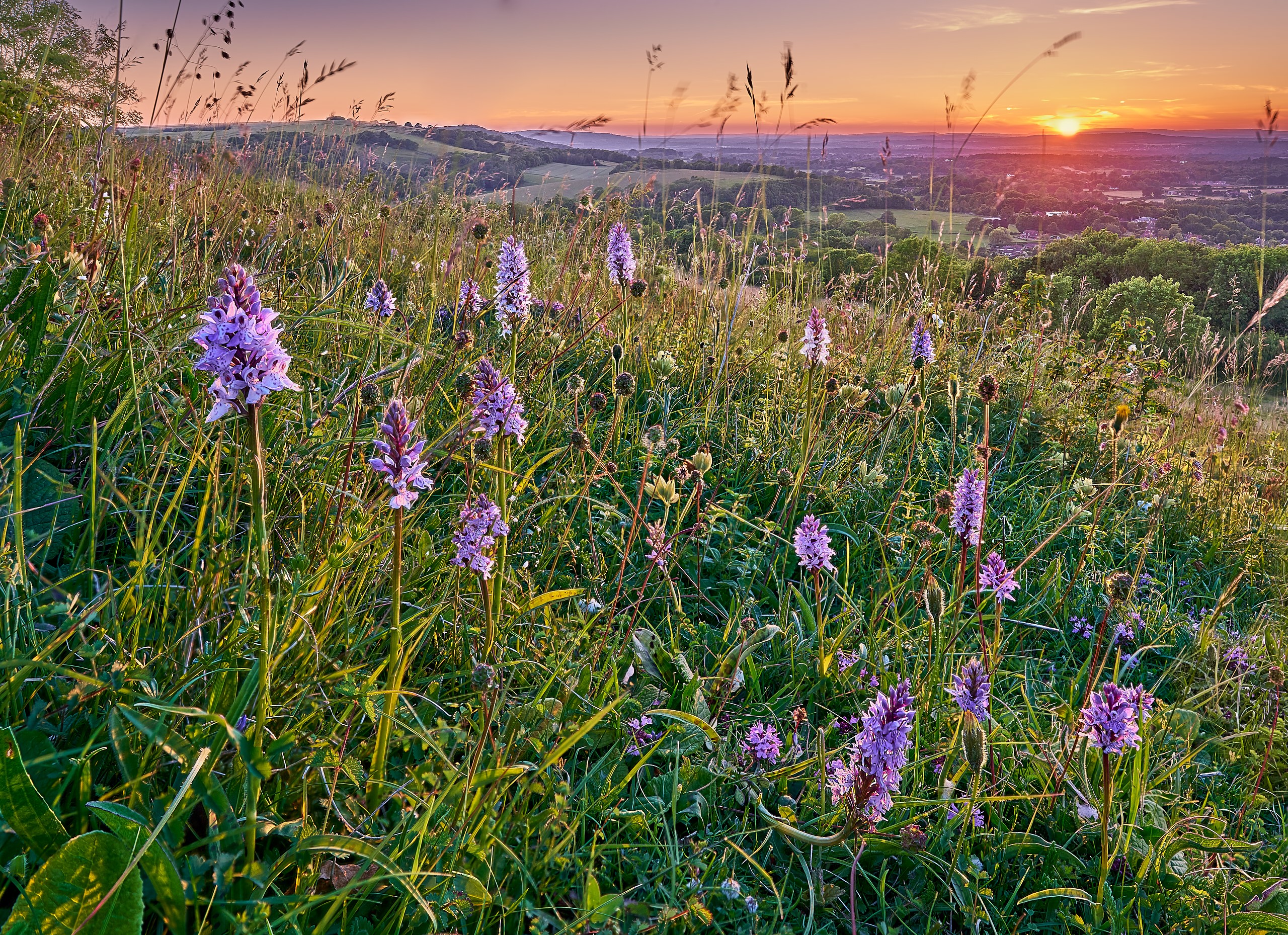Wiston Estate in West Sussex has employed its first full-time ecologist, funded entirely through income from one of the UK’s earliest private Biodiversity Net Gain (BNG) transactions. The appointment marks a significant evolution in how rural estates are embedding ecological oversight into day-to-day land management and demonstrates how biodiversity credits can be reinvested into long-term environmental delivery and rural economic resilience.
Penny Green, formerly of the renowned Knepp Estate, joined Wiston in late 2024, realising a longstanding ambition for the Goring family, who have stewarded the estate since the 18th century. Her work is already deepening understanding of biodiversity across the estate’s 6,000 acres of in-hand farmland, tenanted land, woodland and restored chalk grassland.
“It’s been amazing seeing Penny come on board,” says Rick Goring, Chairman of Wiston Estate. “It’s very easy to make yourself feel good by saying, ‘oh, we’ve got skylarks, and there are linnets and corn buntings’, but having somebody on-site full time who can identify what is and isn’t working on the land has been a real game-changer.”
In October 2023, the estate became one of the first in England to complete a private BNG deal, ahead of new legislation requiring most developments to deliver at least 10% biodiversity net gain, which came into force in February 2024.
For more detail on this, please click here: https://www.wistonestate.com/story/biodiversity-net-gains/
Rather than treating the income as a windfall, the estate reinvested directly in ecological capability, using the proceeds to fund the appointment of Green, a move Goring describes as a “ten-year dream.” Her expertise has already begun to shift the estate’s understanding of biodiversity.
“Having an ecologist on site has transformed our ability to understand what nature is doing,” says Goring. “That insight is already shaping day-to-day decisions, and it’s helping the whole team engage with the bigger picture. Once you begin to understand what’s really happening on the land, it becomes utterly fascinating. And then it starts to influence everything; how you farm, where you invest, even how you think about succession.”
Jamie Evans-Freke, Partner in Knight Frank’s Rural Consultancy says, “Wiston demonstrates how BNG can evolve beyond a regulatory obligation into a cornerstone of long-term estate strategy. By reinvesting income into in-house ecological expertise, they’re strengthening their ability to track, manage and evidence biodiversity outcomes.
“As natural capital becomes increasingly important to land value and rural business planning, this approach offers a clear model for other landowners, combining rigour, resilience and practical return, while delivering measurable outcomes for nature itself.”
The estate’s long-standing commitment to environmental improvement dates back nearly four decades. In the mid-1980s, Rick’s father was one of the first farmers in the South Downs to enter an Environmentally Sensitive Area scheme, marking the beginning of Wiston’s shift toward landscape-scale chalk grassland regeneration.
That legacy continues today through active habitat restoration, which has supported the return of rare orchids, butterflies, bats and farmland birds. Wiston’s location within the Weald to Waves nature corridor adds to its role in reconnecting habitats and supporting biodiversity at a landscape scale.
“You never start at the beginning in these landscapes,” Goring explains. “You’re always stepping into the middle of things, responding to what came before and shaping what happens next. That’s why having someone like Penny is so valuable. She gives us the evidence base to track what’s working and what isn’t, and that helps us make decisions we can stand behind.”
The investment in ecological expertise is enhancing biodiversity and positioning the estate to engage more confidently with the evolving BNG market. Building on its early success, Wiston is now preparing a second tranche of over 300 biodiversity units linked to chalk grassland restoration and arable reversion.
“An ecologist also allows you to show the government or corporate funders that you are delivering what you’ve promised to do,” says Goring. “That’s going to become increasingly important.”
Wiston’s approach also addresses a growing concern among landowners about the layers of intermediaries in the BNG process.
“There’s a huge amount of noise in the BNG world,” Goring adds. “A lot of people want to sit between the landowner and the buyer and take a cut along the way. We’ve tried to keep it direct, as much as we can.”
BNG now sits alongside other forms of natural capital income at Wiston. The estate is currently working with Southern Water on nitrate mitigation schemes involving cover crops and herbal leys. At the same time, it continues to commercially farm 800 acres of arable crops, produce award-winning English sparkling wine and support a growing hospitality and business community – all within a uniquely sensitive chalk and flint landscape in the South Downs National Park.
“Our core purpose is to create a rural meeting place where people, nature and enterprise can all flourish,” Goring says. “BNG brings investment into the estate, and that helps us employ people, support local businesses and look after nature properly.”
As Penny’s monitoring work expands, the estate plans to open up more of its ecological journey with the public.
“She’s already uncovering things we hadn’t seen before,” says Goring. “And as that grows, we want to share it – with care and integrity – creating meaningful opportunities for people to connect with our land. That’s part of the next chapter.”
Read more about Wiston and other leading estates in the latest edition of Knight Frank’s Rural Report: https://publications.knightfrank.com/the-rural-report/ss25/

